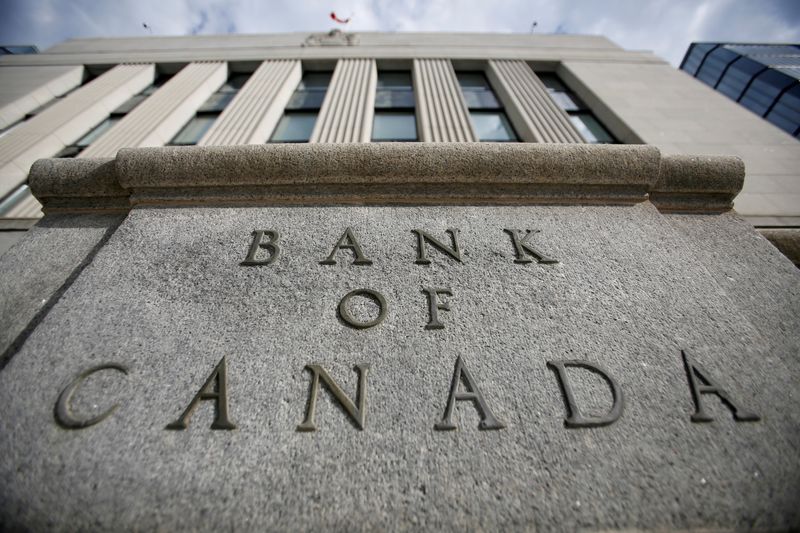By Mumal Rathore
BENGALURU (Reuters) - The Bank of Canada's next policy move will be to taper its asset purchase programme following a solid economic rebound and sustained growth later this year, according to a majority of economists in a Reuters Poll.
Despite renewed lockdowns in some provinces and expectations of a slowdown this quarter policymakers expect a recovery to be driven by a successful vaccine rollout, knock-on effects from a U.S. fiscal package and further gains in oil prices.
The consensus of the March 1-5 poll predicted the BoC would keep its key interest rate on hold at 0.25% through to the end of next year, unchanged from the previous poll.
While two of the top five Canadian banks predicted the central bank would hike rates as early as the second quarter next year, none of the 34 respondents expected any change at the bank's next meeting on March 10.
More than 70% of poll participants, or 15 out of 21, who responded to an additional question, said the central bank would taper its asset purchases programme as its next move.
"The bank will look to re-calibrate its quantitative easing programme before moving on the overnight rate," said Derek Holt, vice president of Capital Markets Economics at Scotiabank.
"If growth comes in stronger than expected, we could see a reduction in monetary support offered through the asset purchase programme."
Despite the Canadian economy contracting 5.4% in 2020, its deepest annual drop on record, it ended 2020 on a brighter note and grew at a stronger-than-expected annualized rate of 9.6% last quarter.
The economy likely grew 0.5% in January, according to the latest Statistics Canada report despite being hit by a second wave of infections and containment measures.
"The Canadian economy soldiered through the second wave of restrictions much better than anticipated, supported by a big rebound in resource sector activity and a raging housing market," said Douglas Porter, chief economist and managing director economics at BMO.
"Look for new growth drivers to kick into gear as the economy re-opens in stages through this year, leading to roughly 6% growth - a nice mirror image to last year's deep dive. It's not precisely a V-shaped recovery, but it's very close."

All 25 economists who answered another question agreed with the BoC's assessment of a solid and sustainable economy in the second half of this year.